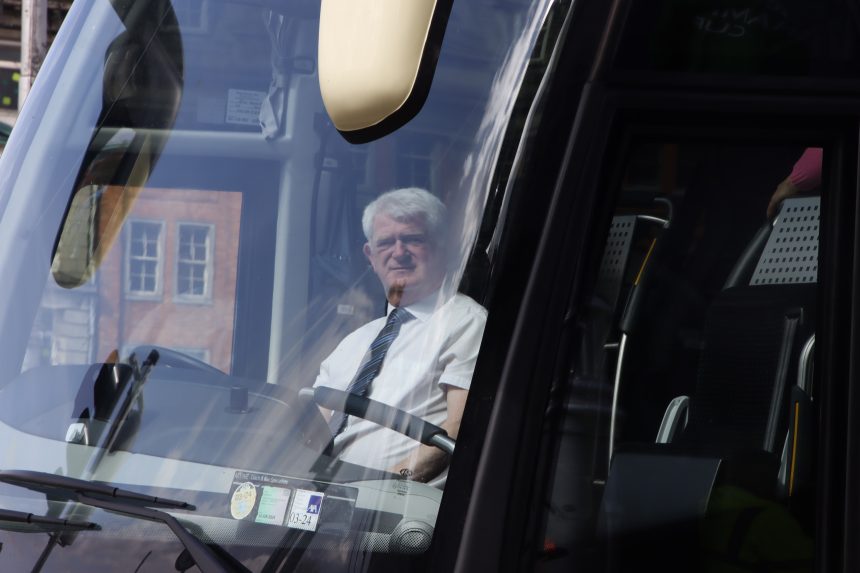Next steps on the road to reform for Driver CPC have been published by the Department for Transport (DfT) in a government response to an earlier consultation on such proposals.
Changes to be adopted in 2024 will take forward the creation of a two-strand mechanism via a National DCPC and an International DCPC. The latter will be required for drivers who work into EU nations, and will comply with terms agreed between the UK and the EU; DVSA has noted that the changes to be made will apply only to the National DCPC.
DCPC is devolved in Northern Ireland, but the consultation response states that the province’s administration has indicated that the proposed changes will apply there.
‘Wide support’ for DCPC reform, says DfT
DfT says that the principle of reforming DCPC “was widely supported” by stakeholders. It adds that in particular, proposals around a periodic testing option within the National DCPC in lieu of defined training are seen positively, although more work is still be done on that.
Also gaining respondent approval are proposals around e-learning; streamlining the DCPC pathway for returning drivers; short-term exemptions; and the introduction of electronic driver qualification cards, although the latter will not proceed for now.
In confirming its next steps, DfT says that it will:
- Reform training by reducing the minimum length for each module to 3.5 hours
- Decouple e-learning from trainer-led courses
- Develop with DVSA more core course content and encourage informal assessment at the end of modules.
Perhaps the most radical part of the proposals is the National DCPC scope for introduction of a periodic test option to sit alongside reformed periodic training. Adding the former is favoured by 53% of consultation respondents, with 37% against. It also factors into work to simplify National DCPC renewal for returning drivers, of which more below.
Further consultation on the periodic test option must take place, however. Changes for other training reforms will be brought forward by secondary legislation in “summer 2024,” but that will not include the work around periodic testing that is subject to more scoping.
Driver CPC reform testing policy draws RHA ire
RHA quickly underlined its previous criticism of plans for periodic testing as a standalone means by which a National DCPC qualification card can be renewed.

Director of Public Affairs and Policy, England, Declan Pang says that while the trade body backs increased flexibility in how the 35 hours’ training is delivered, greater use of e-learning, and a faster route for returning drivers, it has major worries about the periodic test.
Says Mr Pang: “We believe that a periodic test alone is not in line with maintaining safety standards unless it is combined with mandatory training. Therefore, if a test option was to be introduced, it can only be alongside formal training.”
Module duration no shorter than 3.5 hours under latest plan
On reform of the periodic training approach via the National DCPC, initial proposals called for there to be no defined minimum module duration. However, DfT’s response has introduced a 3.5-hour minimum.
The government notes how union Unite highlighted a belief that any shorter duration “may be used by some employers to compel their employees to take courses between shifts.” DfT recognises those concerns, and has highlighted evidence from a previous review of DCPC where a majority of operators and drivers said that a 3.5-hour backstop would be optimal.
“The new minimum limit of 3.5 hours will… [prevent] the possibility of one- or two-hour courses that could, in addition to issues around knowledge gained, be difficult to administer and keep track of by drivers and employers alike,” DfT says.
Such a revised position has angered the Confederation of Passenger Transport (CPT). Operations Director Keith McNally has welcomed what he describes as “the limited amount of additional flexibility” that the wider government recommendations will bring, but a 3.5-hour minimum module duration leaves CPT “very disappointed.”
Adds Mr McNally: “The proposals for shorter course modules would have enabled drivers to undertake some training on normal working days, rather than removing them from behind the wheel for a whole day.
“Measures to make it easier for drivers to return to a driving role are now not expected until 2025, and proposals to introduce a periodic test option as an alternative will also be subject to further consultation. In light of the driver shortages that continue to be seen, we had hoped for rapid progress after the consultation in March.”
Returning driver policy clarified in CPC reform response

Changes to e-learning under the National DCPC will see a relaxation of existing restrictions there.
It will now be the case that a maximum allowance of 12 hours’ e-learning will be applicable per 35 hours of training and with no requirement that only two hours’ e-learning is allowed per trainer-led module, or that split modules must be completed on consecutive days.
In further aspects of the DCPC reform work, DfT will proceed with introducing a “specific return pathway” to navigate National DCPC for drivers whose qualification has lapsed.
One option will be the taking of a seven-hour return to training module, available from spring 2025. The remaining 28 hours will be required within 12 months. In this case, eligibility will be subject to a window of ‘two months to two years’ for the period away from driving.
Alternatively – and subject to the further consultation outlined above – a returning driver may be able to take the same periodic test that is in hand for those renewing a National DCPC. There would be no time conditions imposed on the lapse period under this approach.
On proposals to replace the physical driver qualification card with a digital alternative, further assessment of legislation around that is required. Such a proposal will “therefore be kept under review,” DfT says. Notably, Nottingham City Transport opposed this measure, although across all respondents, a majority were in support.
Read the government response in full here.



























